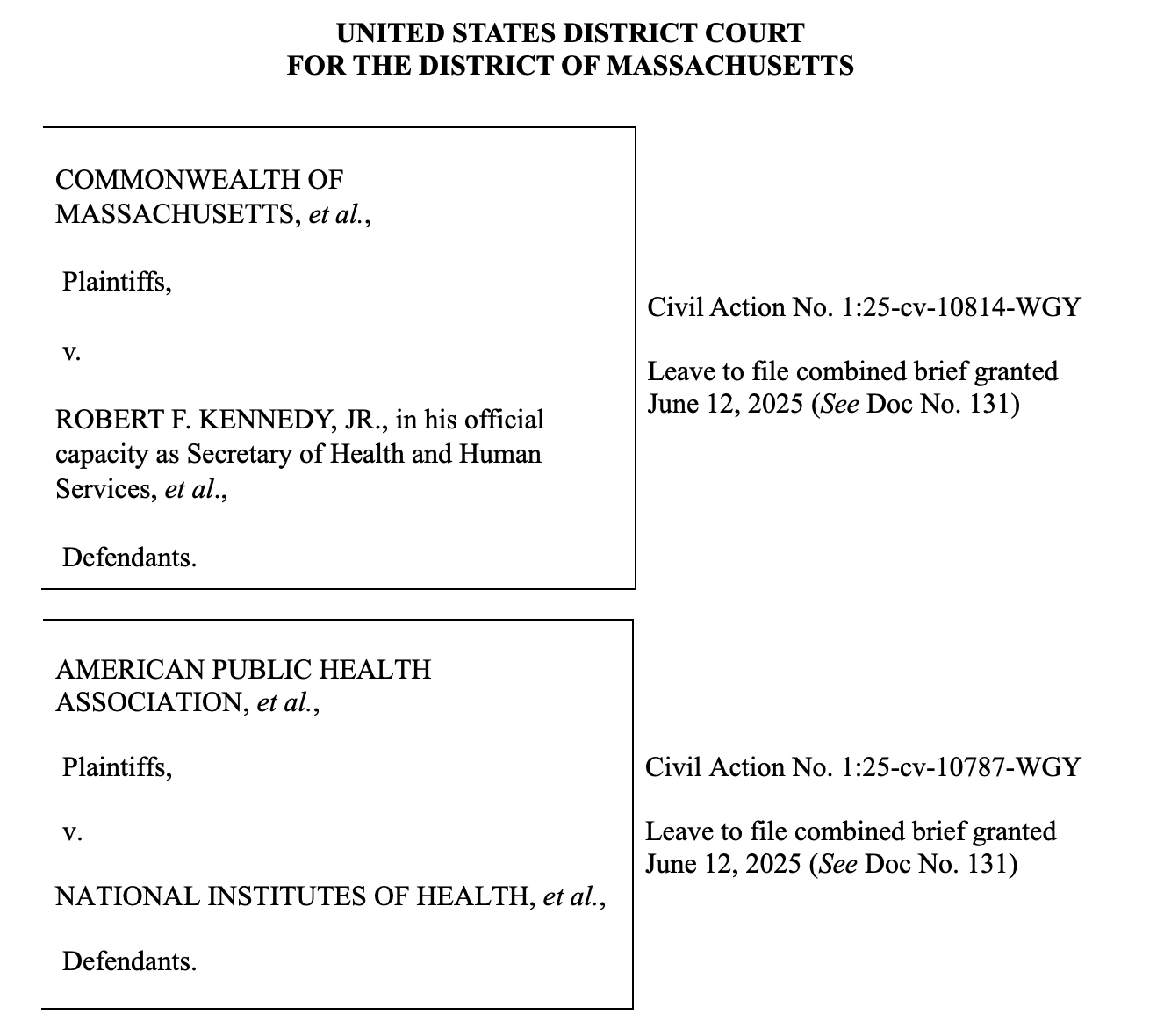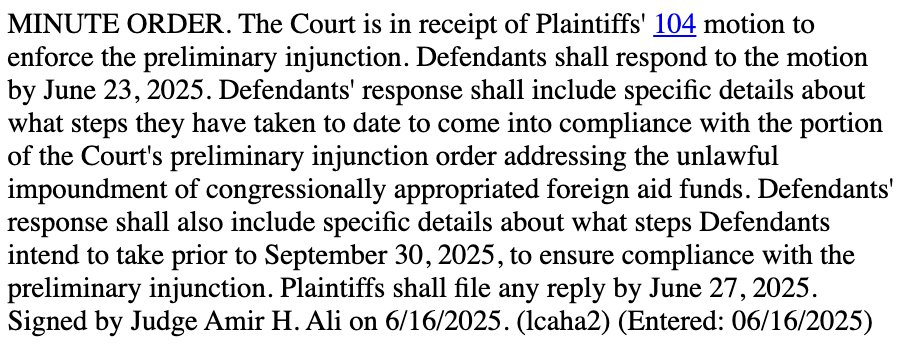Trump admin continues its destructive path, but groups, judges keep pushing back
Chief Justice Roberts might not be clear on when to “check the excesses" of Trump's presidency, but the ABA and two very different district court judges do.
President Donald Trump’s efforts to dismantle wide swaths of the government and attack wide swaths of America have been going nonstop since January 20, but there have been particularly alarming escalations, especially of his anti-immigrant deportation plans, in recent days.
The pushback to Trump, however, is very real.
It was, of course, seen across the nation over the weekend — from Trump’s no-show birthday party in D.C. to the millions of people who showed up across the nation at No Kings Day protests pretty much everywhere else.
That attitude kept moving right into Monday, when the American Bar Association sued the Trump administration over Trump’s attacks on law firms and the legal profession.
The organization’s succinctly explained the issue here — the reason why I have spent so much time on this topic at Law Dork — in the complaint, stating:
Using the powers of the Executive Branch to target private citizens and private firms for destruction is unprecedented, and bad enough regardless of the President’s motives. But the Administration’s Law Firm Intimidation Policy is uniquely destructive because of the critical role that its targets—lawyers—fulfill in our constitutional system. …
Without skilled lawyers to bring and argue cases—and to do so by advancing the interests of their clients without fear of reprisal from the government—the judiciary cannot function as a meaningful check on executive overreach.
As is suggested there, though, the judiciary itself has its own role that it needs to play in checking executive overreach in order for this whole system of checks and balances to actually work.
That, in turn, leads to its own complicated picture — given that the U.S. Supreme Court has appeared less willing than even Trump-appointed district court judges or the appeals courts to address executive overreach.
When exactly does Chief Justice John Roberts think it is the time for the court “to check the excesses of Congress or the executive“ if not now?
Lower court judges are showing how it is done. You have lifetime tenure. You have sworn an oath to uphold the Constitution. The rest is just actually doing the job.
In Massachusetts, U.S. District Judge William Young held a stark hearing on Monday in which he addressed the Trump administration’s cancellation of health research grants based on Trump’s “anti-DEI” and anti-LGBTQ funding orders.
A Reagan appointee born in 1940, Young has been a federal judge since 1985.
Kyle Cheney and Danny Nguyen at Politico covered the hearing, and you should read the whole thing. But, a key reality was Young’s unambiguous willingness to hold the government accountable for both Trump’s actions and the follow-up actions from those Trump has empowered to act.
“I’ve never seen a record where racial discrimination was so palpable,” Young said at one point. “I’ve sat on this bench now for 40 years. I’ve never seen government racial discrimination like this.”
The hearing led to action:
Though Young said he was uncertain whether he had the power to block the executive orders themselves, he declared the NIH cuts Monday to be “illegal” and “void,” and he ordered the NIH to immediately restore the research funds. An appeal is likely.
He continued: “I am hesitant to draw this conclusion — but I have an unflinching obligation to draw it — that this represents racial discrimination and discrimination against America’s LGBTQ community. That’s what this is. I would be blind not to call it out. My duty is to call it out.”
In another funding case, U.S. District Judge Amir Ali also issued an order Monday. One of Biden’s final confirmed judicial appointees, the 40-year-old Ali was born the year Young took the bench. And yet, on Monday, they were doing the same job — Young in Massachusetts and Ali in D.C.
In the State Department/USAID foreign aid funding case, Ali ordered the Trump administration to provide “specific details” by next Monday, June 23, on what steps the government has taken to address “the unlawful impoundment of congressionally appropriated foreign aid funds” and what steps the government plans to take “prior to September 30, 2025” to comply with the March 10 preliminary injunction in the case.
The order followed a June 13 motion by the plaintiffs in the case asking Ali to issue an order enforcing his preliminary injunction. This is necessary, they argued, because, “As of today—more than 13 weeks after the Court issued its [preliminary injunction] order—Defendants still have not produced any evidence that they have obligated any portion of the impounded funds.”
It might appear not to be moving quickly, but Ali’s one-week order for a response is, in its own way, a not-formally-granting-the-request-but-actually-granting-the-request way of dealing with this. In their proposed order, the plaintiffs asked for “a plan for compliance with the preliminary injunction“ to be filed within five days.
Although DOJ could respond inadequately, which would lead to its own follow-up action, the plaintiffs got an order from Ali on Monday directing DOJ to share the Trump administration’s plan for compliance with the preliminary injunction by June 23 — five business days from Monday.





I don’t see this going anywhere, the DOJ will attempt to stall as always!! It is nice to see judges from both sides understanding what Trump and his administration are doing is just flat out criminal, discriminatory and unconstitutional !!
Meanwhile, to provide a "distraction", Hegseth has ordered massive mobilization throughout US bases in the ME, which looks for all the world as an impending air attack upon Iranian nuclear enrichment installations, in concert with tRump's comrade-in-felonies Bibi...look out!